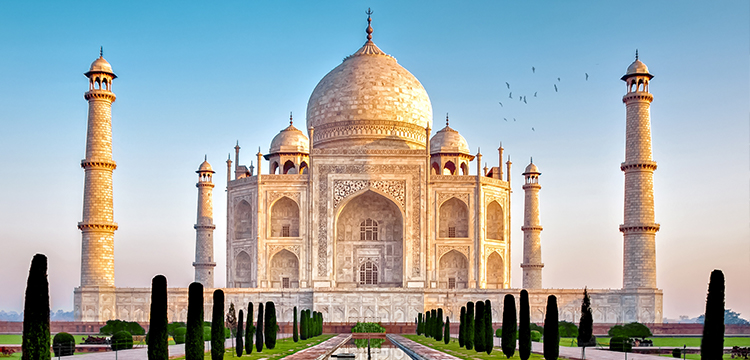It's been a busy week in India. For one thing on a day when nearly 87,000 new Covid infections were reported the Taj Mahal has been re-opened for tourists business. True, it is not quite business as usual. Visitor numbers have been capped at 5,000 a day, just a quarter of pre-pandemic numbers. But after six months of being closed the iconic monument, built by a devastated Mughal for his beloved wife as a mausoleum, has at least opened its doors. Anyone visiting it will have their temperature taken on arrival and will have to strictly observe social distancing restrictions. As with tourist attractions in many other countries tickets are only being sold online but it is interesting to note that despite the pulling power of this magnificent building the number actually procured is much less than those available. It is a reminder that in the short term at least the new normal is very different than the old version. In the recent past it as difficult to go close to the building without finding oneself in the middle of a vast crowd of other sightseers.
Narendra Modi, India's strongman Prime Minister, turned 70 at the end of last week. He shows little sign of slowing down and during the past few days has taken the opportunity of increasing government powers. His supporters will of course assert that this is due to the extraordinary circumstances pertaining in the country whilst his critics will suggest that it is just another power grab to increase his grip. As usual it all depends on which political perspective one is coming from. But it is also true to say that it is an accusation which has been made in other countries too. Even in the UK government critics, including a number from the back benches of the ruling Conservative party of Boris Johnson, have suggested that Parliament has been far too readily bypassed in the last six months and a vote due to be held in the House of Commons next week in order to extend existing emergency powers is by no means a forgone conclusion.
At current rates India is likely to surpass 100,000 Covid deaths by the end of next week, about 10% of the global total. Some experts suggest that this figure is likely to be significantly understated. So too would be the case with the number of reported infections, which at around 6 million are second only to the USA and account for approaching 20% of global numbers. The virus has struck close to home as well with India's railway minister Suresh Angadi dying of the disease this week. Ten members of Mr Modiís council of ministers have also tested positive and 30 legislators attending the 18-day meeting of parliament (which in the event ended eight days early) did too. To add to the gloomy picture the economy is forecast to shrink by 10% this year. Despite these grim stats, in common with other strongman jurisdictions Mr Modi's government insists that it has handled the pandemic well. In our so-called information age, the hardest job is often identifying what is information and what is actually just spin.
Wayne Bartlett is an author for accountingcpd. To see his courses, click here.

You need to sign in or register before you can add a contribution.